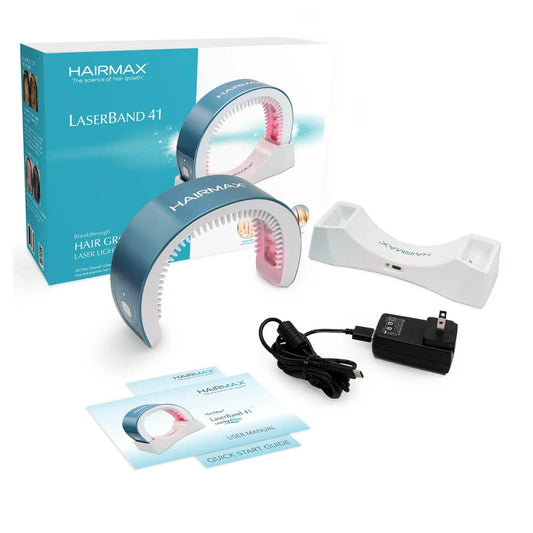
Unmasking Menopause Fatigue: Symptoms, Timeline, and Alternative Treatments
Share
Menopause is a natural biological process that marks the end of a woman's reproductive years. While it is often associated with hot flashes and mood swings, many women also experience another common symptom – fatigue. Menopause fatigue can be debilitating and affect a woman's overall quality of life. In this blog post, we will explore the symptoms, timeline, and treatment options for menopause-related fatigue to help women better understand and manage this challenging aspect of the menopausal transition.
Symptoms of Menopause Fatigue

- Persistent Tiredness: One of the hallmark symptoms of menopause fatigue is persistent tiredness that doesn't seem to improve with rest. Women may find themselves feeling exhausted, even after a full night's sleep.

- Reduced Energy Levels: Menopause can lead to a significant decrease in energy levels, making it difficult to perform daily tasks and engage in physical activities.
- Difficulty Concentrating: Many women report difficulty concentrating or experiencing brain fog during menopause. This can affect work, memory, and overall cognitive function.

- Irritability: Chronic fatigue can lead to irritability and mood swings, which can strain relationships and impact emotional well-being.

- Sleep Disturbances: Menopausal women often experience disrupted sleep patterns, including frequent wake-ups during the night and difficulty falling back asleep, contributing to their fatigue.
Timeline of Menopause Fatigue
Menopause typically occurs between the ages of 45 and 55, with the average age being 51. The timeline for menopause fatigue can vary from woman to woman, but it generally follows a similar pattern:
-
Perimenopause (2-10 years before menopause): During this phase, hormone levels, particularly estrogen, begin to fluctuate. Fatigue may start to become noticeable, but it's often attributed to other factors such as stress or age-related changes.
-
Menopause Transition (1-2 years before menopause): As a woman approaches menopause, fatigue tends to intensify. Sleep disturbances become more common, contributing to increased tiredness.
-
Post menopause (1 year after the last menstrual period): While some women experience a reduction in fatigue post-menopause, others may continue to struggle with it. It's essential to address fatigue during this phase to improve overall well-being.
Treatment Options for Menopause Fatigue
-
Hormone Replacement Therapy (HRT): For some women, HRT can help alleviate menopausal symptoms, including fatigue. HRT replaces hormones like estrogen, which decline during menopause. However, it's essential to discuss the risks and benefits of HRT with a healthcare provider.

Lifestyle Changes:
- Regular Exercise: Engaging in regular physical activity can boost energy levels, improve sleep, and reduce stress.
- Healthy Diet: A balanced diet rich in nutrients can help combat fatigue. Incorporate foods high in antioxidants, vitamins, and minerals.
- Stress Management: Stress can exacerbate fatigue. Practicing relaxation techniques like yoga or meditation can be beneficial.
- Adequate Sleep: Establish a consistent sleep routine and create a sleep-conducive environment.

Nutritional Supplements: Some women find relief from fatigue through the use of supplements like vitamin D, B-complex vitamins, and iron. Consult with a healthcare provider before starting any new supplements. Provitalize supplements specifically target the key issues women face during their menopausal transition. Its formula features a studied blend aiming to harmonize the body's shifting hormone levels.
It contains the best probiotics for belly fat - like L.Gasseri, B.Breve, and B.Lactis. These aren’t just the best probiotics for menopause belly, but supporting your gut health can lead to balance throughout your body as a whole.
Prescription Medications: In some cases, healthcare providers may prescribe medications to address severe menopause-related fatigue or associated symptoms like depression or anxiety.
Alternative Therapies: Acupuncture, herbal remedies, and mindfulness techniques are alternative approaches that some women find helpful in managing menopause fatigue.

Seek Support: Joining a menopause support group or discussing your symptoms with a healthcare provider can provide emotional support and valuable insights into managing fatigue.
Menopause fatigue is a common and often overlooked symptom that can significantly impact a woman's quality of life during this transitional phase. Understanding the symptoms, timeline, and treatment options for menopause-related fatigue is crucial for effectively managing it. By addressing fatigue through a combination of lifestyle changes, medical treatments, and emotional support, women can navigate menopause with greater comfort and well-being, allowing them to enjoy this new phase of life to the fullest.



